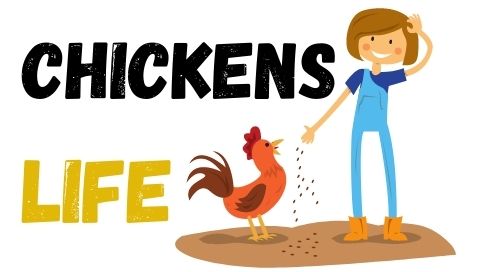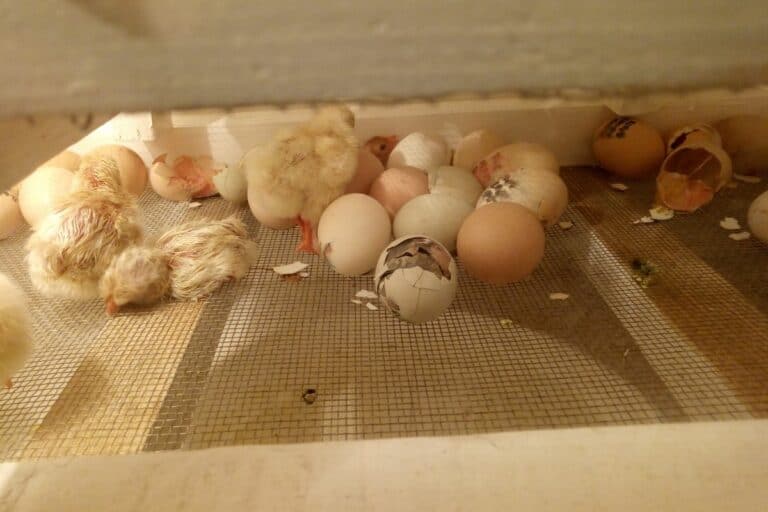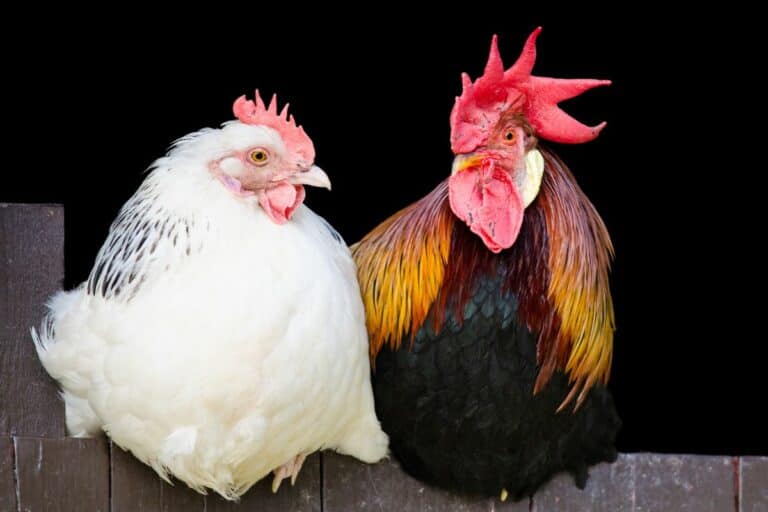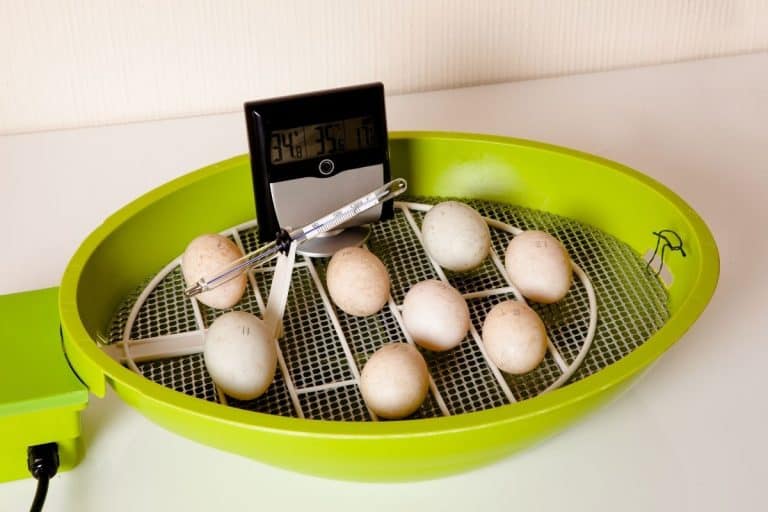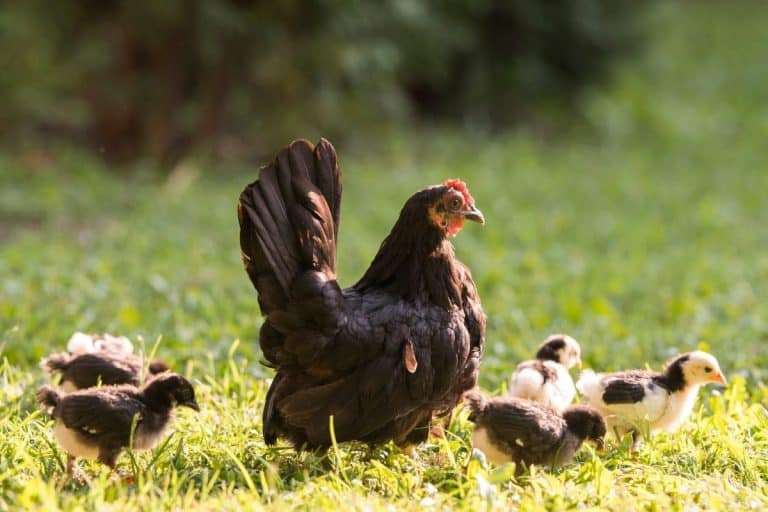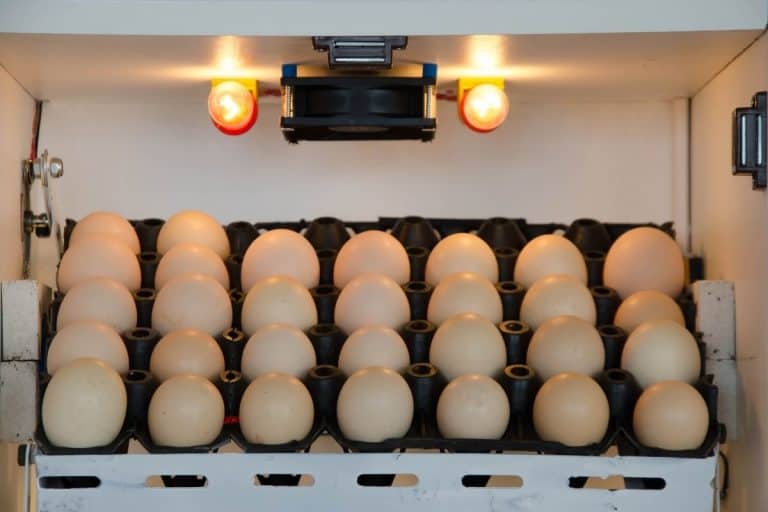How Long Can an Egg Be Cold Before it Dies? (+Tips to save them)
Low temperature can have drastic effects on eggs development if not managed accurately, so I will explain to you all the mandatory information about temperature and other requirements for eggs.
As a general rule, fertilized eggs can survive for a maximum of 7 days under 70 °F (21 °C). A temperature under 28.4 °F (-2 °C) will kill the embryo inside the egg. The cell division of the fertilized egg slows down below 79° F (26° C) and completely stops below 70° F (21° C).
Keeping eggs alive in an incubator is not as easy as it may seem, so keep reading to learn a few other tips to increase your success rate.
Hey chicken buddies: Quick heads-up before going further! I've put together a list of stuff I use and love for my flock. If you're curious about what keeps my hens happy, click here to find out.
How Long Chicken Eggs Can Be Cold Before Setting In An Incubator?
The hatchability is highly reduced if eggs remain cold for longer durations, so setting your chicken eggs in the incubator at the right time is essential.
I have added a table to give you a better understanding that how you can increase the survival of eggs while keeping them cold.
| Survivability % | Duration (Days) | Temperature °C | Temperature °F |
| 90 | 1-3 | 20 | 68 |
| 70-80 | 1-7 | 15 | 59 |
| 50-60 | More than 7 | 13 | 55.4 |
It’s clear from the table that the early you set your chicken eggs in the incubator, the more fruitful results will be obtained, but only if the eggs remain cold in the ideal temperature range given in the table above.
When the temperature is reduced gradually, chances of embryo survival are great. So, as soon as the egg is laid it should be cooled to suspend the cellular growth of the embryo only when if it is to be placed in an incubator.
Wait, I have some recommendations for you!
Before you go any further, I want you to take a look at some of the recommendations I've handpicked for you. I think these are essential items you should have for your chickens flock. You can check them out and buy them directly from Amazon.
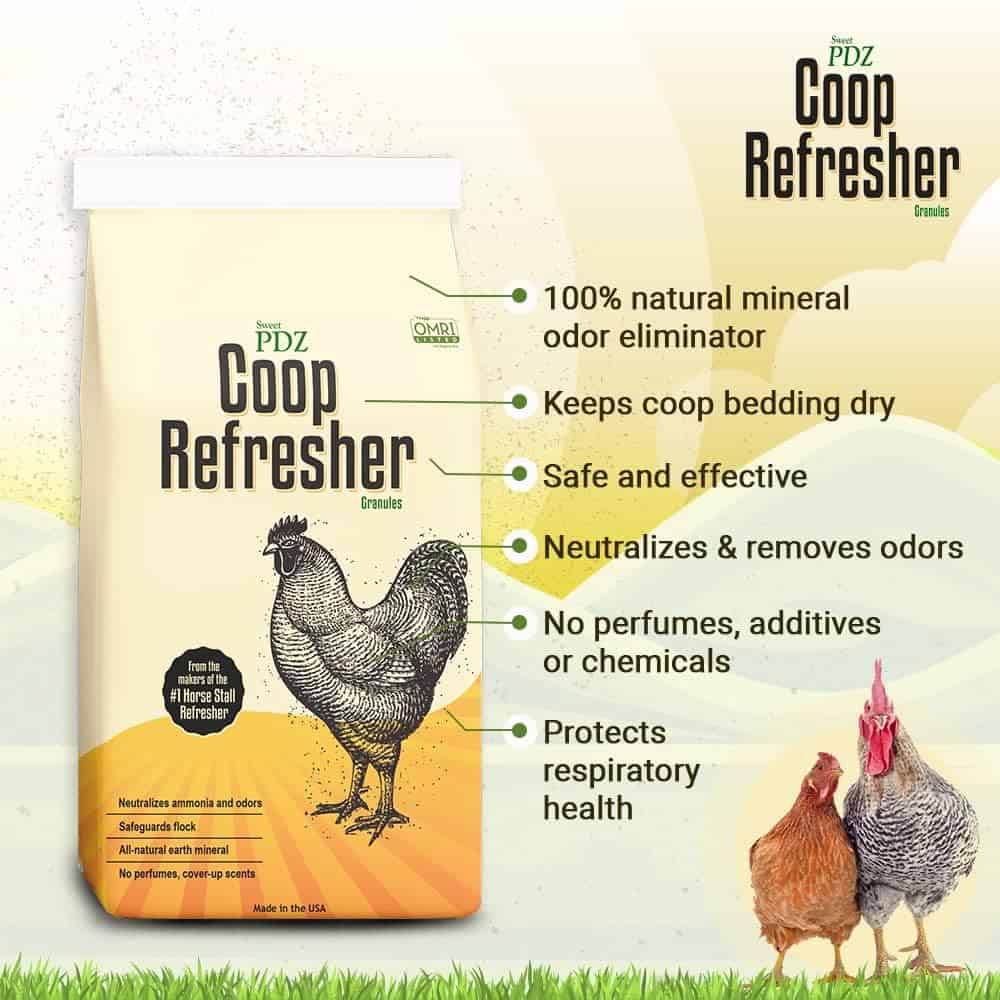 | 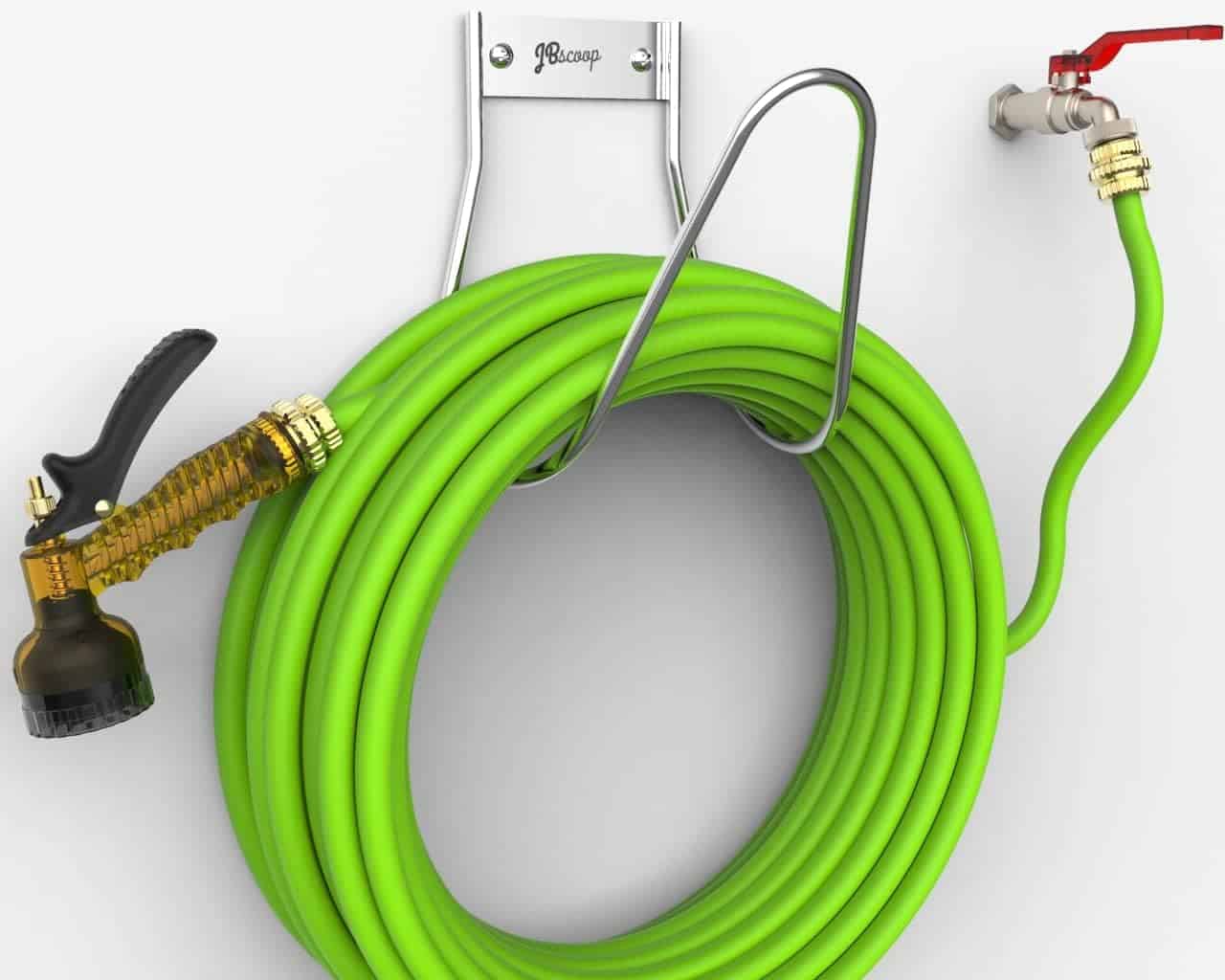 | 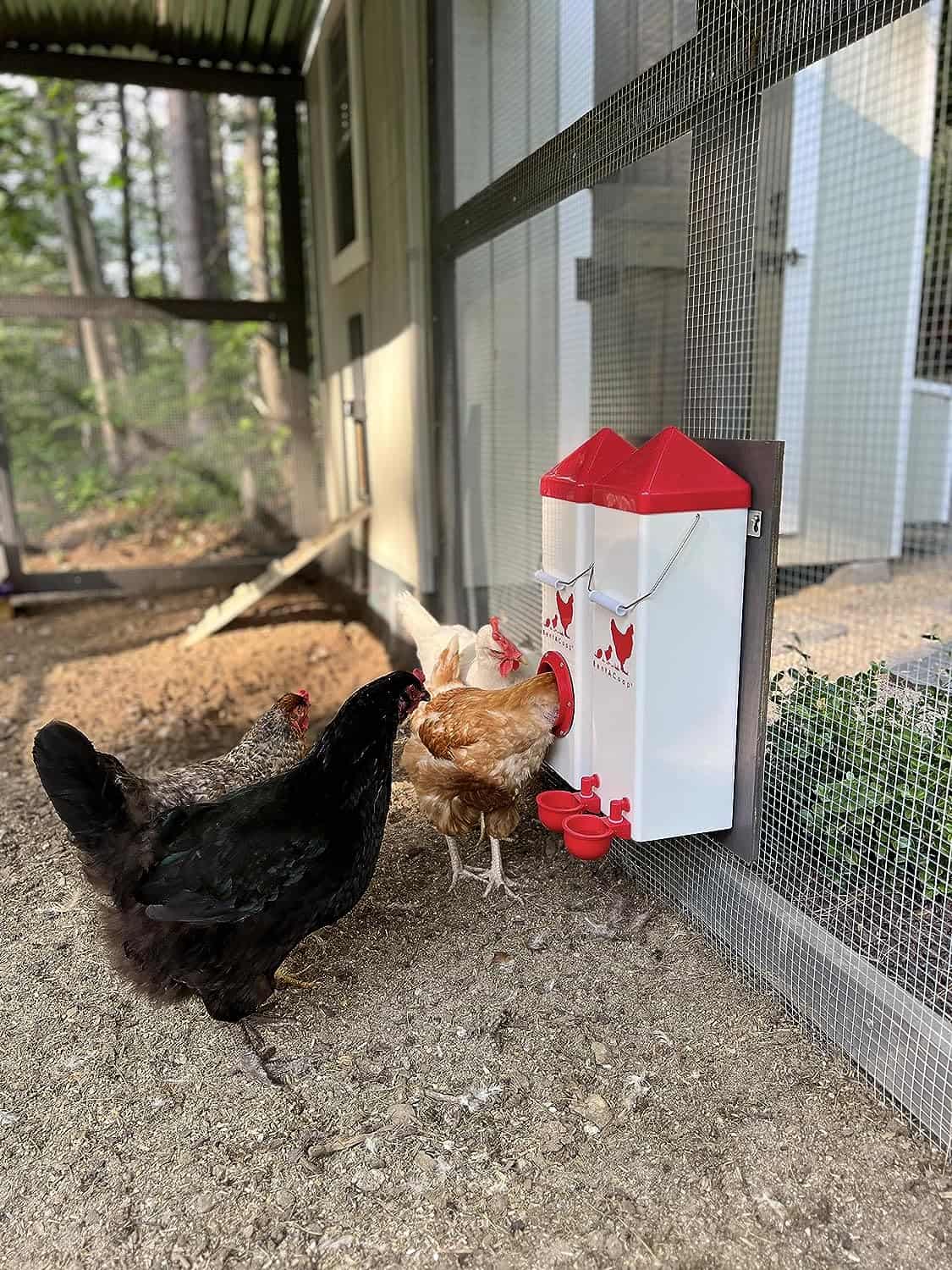 | 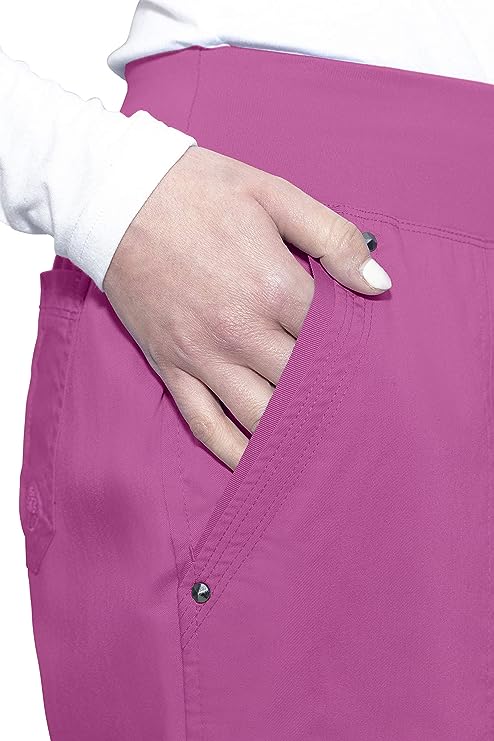 |
| Essential accessory for your coop | No more tripping over hoses! | Predator protection made easy | Comfort + style is possible |
Keeping Fertile Eggs Cold For More Than 7 Days
What if your incubators are full, or there is some technical problem with your incubators and there is no option for you to keep eggs cold for a longer time, this is what you can do to save your eggs from dying.
- Eggs kept cold for longer than 7 days before incubation will result in a loss of hatch due to embryo cell death and a decline in internal egg quality.
- On average, when an egg remains cold for one day it adds one hour to incubation time.
Here are a few tips that may help in keeping cold chicken eggs alive for longer than 7 days, but these may not always work.
- The temperature should be lowered to (13 °C – 55.4 °F), while keeping the narrow end of the eggs in an upward direction to help keep the yolk and albumen in good condition.
- Turning eggs at 90° may also prove beneficial.
- The temperature should be constant once eggs are cold.
Continue reading to know more interesting information about keeping the fertilized eggs cold.
What Happens If Incubating Eggs Get Cold?
In case of any mechanical problem with incubators or power loss, eggs can get cold. On the whole, the survivability depends upon what is the age of the embryos.
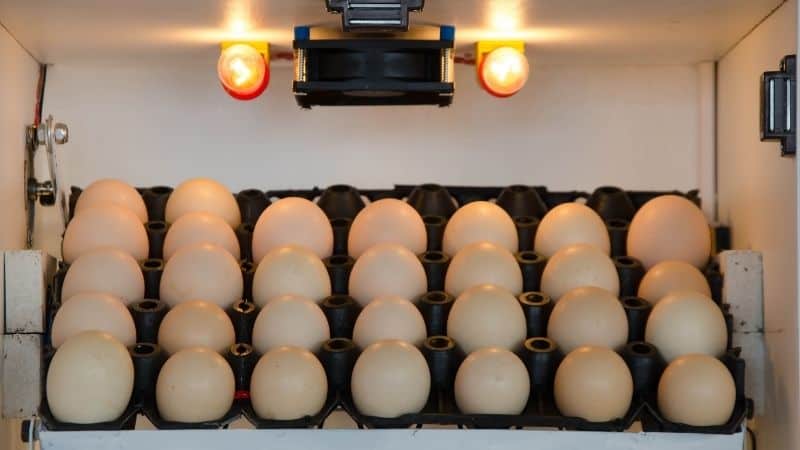
I will recommend you limit the heat loss from the incubators. In such a scenario, keep incubators shut and try to increase the temperature of the room in which incubators are placed if embryos are less than 18 days old until the problem is fixed.
Metabolic heat produced by the embryos above 19 days will keep them warm for some time, only if severe chilling is prevented. High mortality is expected if chilling of eggs has occurred. Short-term cooling has low detrimental effects on eggs.
Can Frozen Eggs Hatch?
Temperature up to (-2 °C – 28.4 °F) for more than 12 hours for fresh eggs causes cold injury to the embryo. The formation of ice crystals occurs at this temperature that leads to permanent damage to the internal structures of the egg.
Eggs that are about 7 days old may survive cooling to near freezing for 24 hours or more without damage. As duration increases at freezing temperatures, hatchability decreases.
I will further explain, that how you can increase the hatchability and survival of cold eggs in natural incubation under a hen, so keep reading.
How Long Can A Chicken Egg Get Cold In A Nest?
For the most part, it depends upon factors which include:
Environmental temperature
Near freezing, temperatures will kill freshly laid eggs in about 12 hours without any external warmth. But if the temperature is favorable around about (16 °C to 20 °C) or (60.8 °F to 68 °F) chicken eggs can survive for up to 7 days.
Location of nest
Provided that the nest is located in a well-insulated place, for example, in a barn where the environmental effect is minimized on the eggs, it will highly increase their survival chances.
Eggs will not be able to survive for much longer in a nest that is exposed to environmental factors like wind, rain, etc.
Nesting material
Most hens will put their breast feathers in the nest that provides good insulation, but if you see no breast feathers, put some straw around the eggs to keep them insulated.
How Long Can A Hen Stay Off Her Eggs Before They Die?
It takes about 21 days for chicken eggs to hatch and until then, hens will sit 24/7 on the eggs and seldom leave the nest, occasionally for 15 to 20minutes a day for feeding and drinking.

Eggs that are less than 9 days old have a microscopic embryo that cannot maintain its temperature and requires constant warmth.
Eggs cannot survive for more than 2 to 3 hours in extreme cold without external warmth from the hen. If the weather is favorable, survival time increases.
But older eggs up to 18 to 19 days old have developed embryos that can manage their temperature for a while by producing metabolic heat. These can cope with the cold for some time, up to 24 hours.
Periodic Cooling Of Eggs
During incubation, birds often leave the nest to forage for short periods leaving incubating eggs behind, resulting in a phenomenon known as periodic cooling. In this phenomenon, eggs that have been warmed by the bird are gradually cooled down as bird leaves, not allowing the embryo to develop at a constant temperature (source).
Chicken embryos can survive periodic cooling, perhaps by altering their physiology to variable thermal conditions, but in exchange for low growth efficiency and rate of development.
How Do Chicken Embryos Maintain Their Temperature?
Embryos that are about 19 days old have developed a nervous system that can coordinate neural processes required for thermoregulation, thermosensors, and controllers working.
These embryos also have developed ‘effectors’; the thermogenic and thermolytic mechanisms that enable the neural ‘controllers’ to operate. The nervous system increases the metabolic rate of the embryo by utilizing egg nutrients to produce metabolic heat.
Reading this article will further help you understand the thermodynamics of chicken embryos.
Temperature Fluctuations During The Incubation Period
The increase and decrease in the temperature of an egg during the incubation period can have a great impact on the health of chicks.
Decreased incubation temperature effects on chicks
- Late hatch
- Decreased hatchability
- Abnormally large chicks
- Soft-bodied chicks
- Weak chicks
Increased incubation temperature effects on chicks
- Early hatch
- Decreased hatchability
- Short down (fine feathers on birds skin)
- Rough navels
- Malformed, spraddled, and weak chicks
Ideal Incubation Requirements For Domestic Birds
| Chicken | Turkey | Duck | Goose | Pheasant | Bobwhite Quail | Pigeon | |
| Incubation Period (days) | 21 | 28 | 28 | 35-37 | 23-28 | 23-24 | 17 |
| Temperature | 100°F 37.7°C | 99°F 37.2°C | 100°F 37.7°C | 99°F 37.2°C | 100°F 37.7°C | 100°F 37.7°C | 100°F 37.7°C |
| Humidity% | 85-87 | 84-86 | 85-86 | 86-88 | 86-88 | 84-87 | 85-87 |
| No Egg Turning After | 18th Day | 25th Day | 25th Day | 25th Day | 21st Day | 20th Day | 15th Day |
You can check my other articles to find more about the differences between chickens and turkeys, or between chickens and ducks.
Conclusions
- Eggs can be cold for about 7 days ideally provided the right temperature range.
- The longer the storage duration, the lower the temperature will be.
- Cooling eggs for short durations does no damage.
- Frozen eggs won’t hatch due to internal damage from crystal formation.
- A gradual decrease in temperature while cooling the eggs will save them from dying.
- Periodic cooling is a part of natural incubation and avian embryos can bear it with ease.
- Optimum temperature, humidity, and ventilation are the main requirements for the incubation of eggs.
Essential Tools for Chicken Owners
Check my curated list of essential products!
I’ve gathered all the best products that have helped me with raising my chickens, so you don’t waste time on bad ones.
Find my complete list of recommendations here.
For more tips, guides, and recommendations, you should definitely subscribe to my newsletter.
Use the form below, it’s free.

